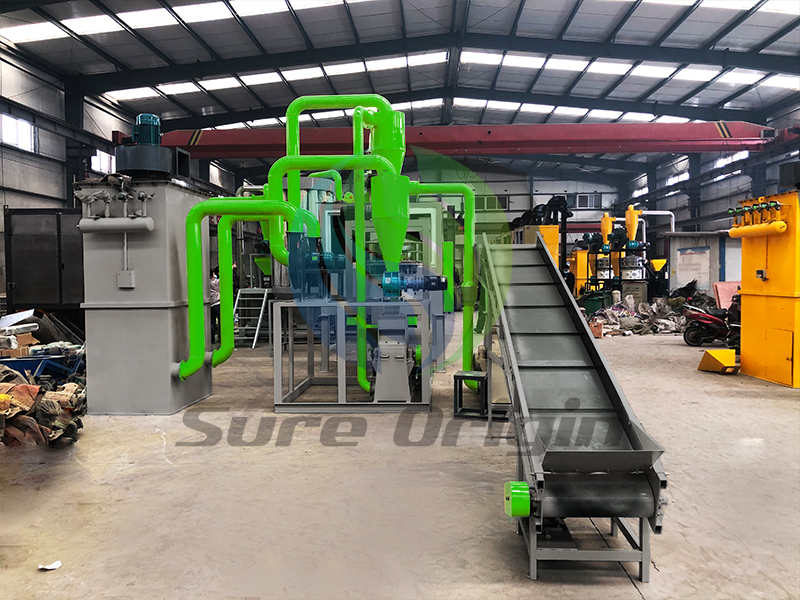Handling circuit boards can be challenging if you haven't come across the right equipment. The E Waste PCB Circuit Board Recycling Machine specializes in decomposing and sieving discarded circuit boards, Polyimide films, PCB boards, and leftover materials from edges and corners. It's highly automated with simple operation, requiring minimal manpower. This equipment falls into the category of environmentally friendly devices.
Old circuit boards contain a considerable amount of high-value waste. Through this set of E Waste PCB Circuit Board Recycling Machine, the resources within the discarded circuit boards can be extracted by means of crushing, sieving, and sorting. They are then discharged from the corresponding outlets, yielding various rare metal resources.

PCB (Printed Circuit Board) recycling machines play a critical role in environmental sustainability and resource conservation. Here are several reasons why PCB board recycling machines are important:
1. Resource Recovery:
PCB contain valuable metals such as gold, silver, copper, and palladium. Recycling machines enable the recovery of these metals from used or discarded PCB, reducing the need for virgin resources and conserving natural reserves.
2. Waste Reduction:
Recycling PCB prevents them from ending up in landfills or being incinerated, which can release harmful toxins into the environment. By diverting PCB from waste streams, recycling machines help reduce the volume of electronic waste and minimize environmental pollution.
3. Hazardous Material Management:
PCB often contain hazardous substances such as lead, mercury, and brominated flame retardants. Recycling machines safely extract and handle these materials, minimizing the risk of environmental contamination and human exposure to toxic substances.
4. Energy Conservation:
Recycling PCB consumes significantly less energy compared to mining and refining raw materials. By processing used PCB into valuable secondary resources, recycling machines contribute to energy savings and reduce greenhouse gas emissions associated with resource extraction and processing.
5. Circular Economy Promotion:
PCB board recycling machines facilitate the transition towards a circular economy by closing the loop on material consumption. Recovered metals and other materials can be reintegrated into the manufacturing process, extending their lifespan and reducing the need for new materials.
6. Economic Benefits:
PCB recycling machines create economic opportunities by generating revenue from the sale of recovered metals and materials. Additionally, they create jobs in the recycling industry and stimulate local economies.
7. Compliance with Regulations:
Many countries have regulations and directives governing the disposal and recycling of electronic waste, including PCB. Investing in PCB board recycling machines helps businesses and organizations comply with these regulations and meet their environmental responsibilities.
In summary, PCB board recycling machines are essential for promoting environmental sustainability, conserving resources, reducing waste, and protecting public health. By investing in these machines, industries and governments can contribute to a cleaner and more sustainable future.


